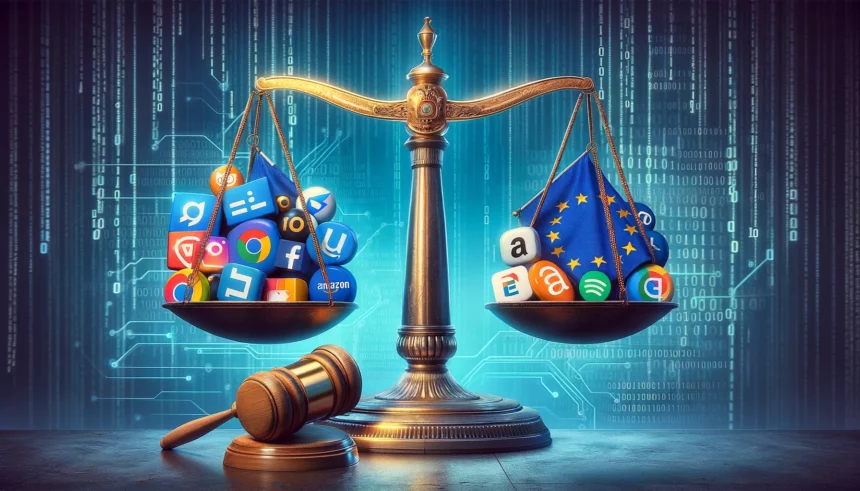In a groundbreaking move, Europe has introduced stringent new regulations targeting Big Tech’s dominance in the digital marketplace. The introduction of the Digital Markets Act (DMA) has set the stage for a significant overhaul in how major online platforms operate within the European Union, aiming to foster a more competitive environment. However, the effectiveness of these new rules is under scrutiny, with concerns over their practical impact on fostering genuine competition.
Berlin-based search engine start-up Ecosia finds itself at the heart of this regulatory storm. Its founder, expressing stress over the past months, is particularly concerned about how Google, a larger rival, will adhere to these new EU mandates designed to level the playing field. The DMA requires platforms like Google to offer users a choice screen, letting them select default services such as internet browsers or search engines. Despite these intentions, there’s apprehension that the move might inadvertently favor Google, further entrenching its market position.
Google has responded, asserting its commitment to comply with the DMA, emphasizing its dedication to offering users choice and control, and basing its choice screen design on extensive research and dialogue with the European Commission. Yet, skepticism remains, not just from Ecosia but across a spectrum of stakeholders, including legal experts and industry insiders. They question whether the DMA’s provisions are too little, too late, and if Big Tech can be effectively reined in.
For years, Brussels has grappled with the challenge of curtailing the market power of giants like Google, Amazon, and Facebook. Despite imposing hefty fines, these efforts have scarcely dented the companies’ core market dominance. The DMA represents the EU’s latest attempt to address these concerns, with rules that impact how gatekeeper platforms—those with significant influence in the digital market—operate within the EU.
As the compliance deadline approached, it became evident that the DMA’s impact might be more limited than hoped. Criticisms have emerged that tech giants are navigating the DMA’s requirements in ways that adhere to the letter of the law while missing its spirit. This has led to doubts about the DMA’s ability to effect meaningful change in the competitive landscape, especially as these companies continue to thrive financially and as the tech industry ventures into the AI era.
The DMA empowers European regulators with unprecedented enforcement capabilities, including the option of imposing fines or demanding structural changes from non-compliant companies. Recent actions, such as a substantial fine against Apple for antitrust violations, signal the EU’s readiness to challenge Big Tech. Yet, the effectiveness of these measures and the EU’s willingness to enforce them aggressively remain to be seen.
The law targets practices such as self-preferencing and mandates more openness in platform operations, aiming to give consumers more choices and control. Despite these ambitious goals, early responses suggest that Big Tech’s adaptations may not lead to significant market shifts. The implementation of choice screens and other compliance measures has raised concerns about their real-world effectiveness in promoting competition.
As Europe navigates these regulatory waters, the global tech community watches closely. The outcome of the EU’s efforts against Big Tech’s dominance could set precedents for digital market regulation worldwide. However, achieving the DMA’s objectives may require more than just legislative action; it could necessitate a sustained commitment to enforcement and a willingness to explore more drastic remedies against companies that resist meaningful compliance.
















